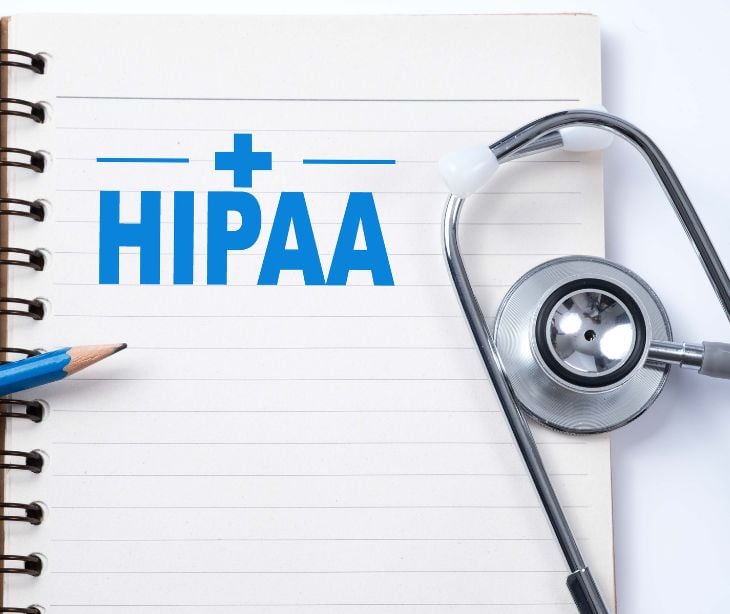
HIPAA certification is a more advanced form of HIPAA training that provides a thorough understanding of the regulations and encourages a culture of compliance. Certification offers several advantages, such as increased patient trust, decreased risk of penalties, and better risk management. Organizations that obtain HIPAA certification demonstrate their commitment to protecting patient privacy and ensuring the security of health information.
Understanding HIPAA certification
HIPAA certification for healthcare workers provides a deeper understanding of the privacy and security rules, the reasons behind their existence, and the actions healthcare workers can take to ensure HIPAA compliance.
Healthcare workers receive education on frequently violated HIPAA standards, such as patient rights, the minimum necessary standard, and allowable uses and disclosures. This knowledge helps healthcare workers avoid unintentional HIPAA violations due to a lack of awareness.
HIPAA certification can be defined in two ways. It can be a point-in-time accreditation for organizations that have successfully passed a HIPAA compliance audit. It can also be a recognition that an organization's workforce members have achieved the necessary level of HIPAA knowledge to comply with its policies and procedures. Both types of certification are valuable credentials to have.
Go deeper:
- Is there a HIPAA certification?
- What is the Minimum Necessary Standard?.
- Understanding HIPAA violations and breaches
HIPAA certification requirements for covered entities
For a covered entity to be certified as HIPAA compliant, it must thoroughly review its compliance with the administrative, technical, and physical safeguards outlined in the HIPAA Security Rule. This review includes audits of assets and devices, IT risk analysis, physical site inspections, security and privacy standards audits, and privacy audits related to the Health Information Technology for Economic and Clinical Health (HITECH) Act.
Achieving HIPAA certification for covered entities takes time and effort. The time it takes to obtain certification depends on the organization's current level of compliance and the nature of any gaps that may be identified during the audit process.
Related: What are administrative, physical, and technical safeguards?
HIPAA certification requirements for business associates
Business associates, entities that provide services to covered entities, also have specific HIPAA certification requirements. These requirements are tailored to the nature of the services they offer. Like covered entities, business associates must implement security and awareness training programs for all members of their workforce.
It is common for potential business associates to undergo audits by third-party HIPAA compliance companies to confirm their compliance with HIPAA standards. These audits provide peace of mind to covered entities and help business associates identify and address compliance gaps.
Read also: What does it mean to be a business associate?
Benefits of HIPAA certification
Becoming HIPAA certified offers several benefits for healthcare workers, covered entities, and business associates, including:
Enhanced understanding of HIPAA
HIPAA certification provides healthcare workers a deeper understanding of HIPAA regulations beyond basic training. This education helps prevent unintentional violations and promotes a culture of compliance within the healthcare industry.
Improved patient trust
When patients are confident that their privacy is being respected and their data is secure, it fosters trust and strengthens the patient-provider relationship.
Reduced risk of penalties
HIPAA violations can result in significant financial penalties for covered entities and business associates. Achieving HIPAA certification demonstrates a good faith effort to comply with the regulations, which may influence the severity of penalties imposed in case of a violation.
Competitive advantage
HIPAA certification can give covered entities and business associates a competitive edge in the healthcare industry. Certification demonstrates a commitment to privacy and security, making their services more appealing to prospective clients who prioritize HIPAA compliance.
Streamlined business associate relationships
Business associates who obtain HIPAA certification can streamline their relationships with covered entities. Certification reduces the need for extensive due diligence by covered entities, as it is evidence of a business associate's commitment to compliance.
Improved risk management
Preparing for HIPAA certification requires organizations to conduct thorough risk analyses and identify any gaps in compliance. This proactive approach to risk management helps organizations implement effective safeguards, reducing the likelihood of data breaches and HIPAA violations.
Continuous improvement
HIPAA certification is not a one-time achievement. It fosters a culture of continuous improvement and ongoing compliance. Regular audits and refresher training ensure healthcare workers stay updated with HIPAA regulations and best practices.
Subscribe to Paubox Weekly
Every Friday we'll bring you the most important news from Paubox. Our aim is to make you smarter, faster.





